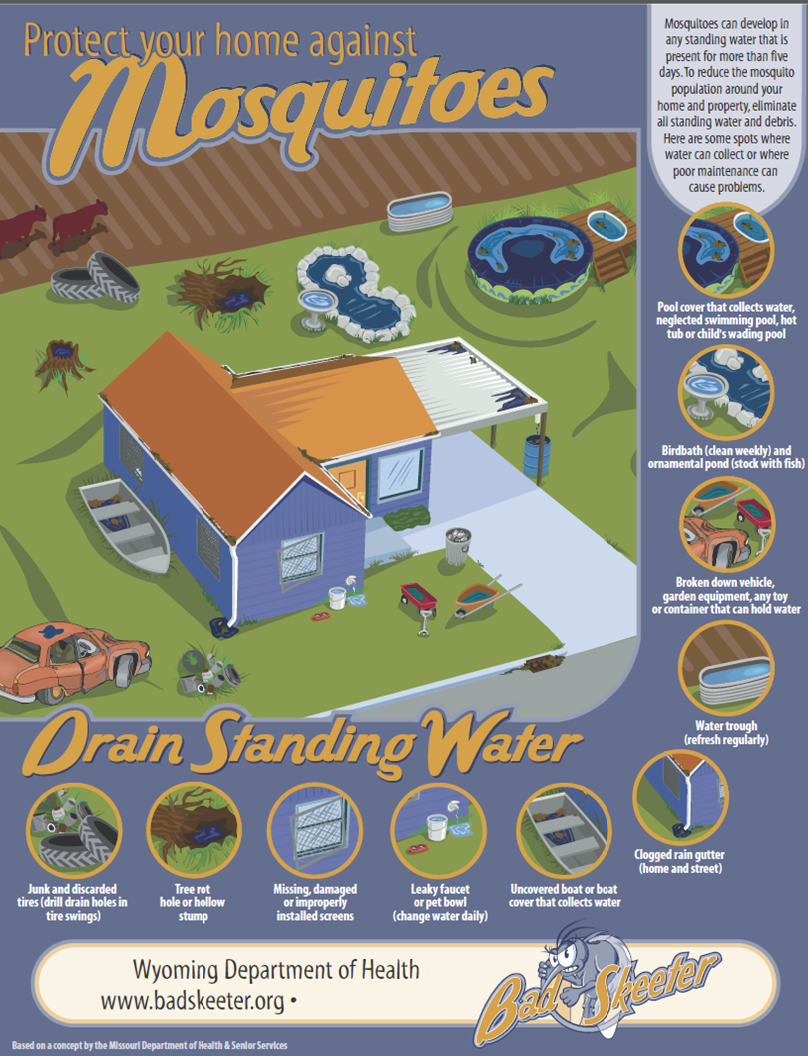
Mosquito Abatement
The Town of Encampment uses a proven combination of species specific treatment methods to help control mosquito larvae and adult mosquitoes to aid in the prevention of the spread of West Nile Virus and to provide a comfortable, better quality of life by limiting mosquito’s community wide. Treatment will include standing and slow moving water, aerial and ground fogging, public education and involvement, and a focus on reduction of habitat while protecting the environment.
The Town of Encampment funds a portion of their Mosquito Abatement Program through a $2.00 per month Mosquito Abatement Fee on its utility bills. Additional funding is obtained through grants or in partnerships with other agencies.
WEST NILE VIRUS PREVENTION TIPS
Although mosquitoes are most active at dusk or dawn, some bite during the day. Mosquitoes will bite if you enter an area where they are resting, such as high grass or heavy underbrush. While it is not necessary to limit outdoor activity (unless there is evidence of mosquito-borne disease in the area), you can and should reduce your risk of being bitten by mosquitoes. Common sense steps you can take to minimize the probability of infection include remembering the 5 D’s of West Nile Virus prevention:
- DAWN &
- DUSK – When possible, avoid spending time outside at dawn and dusk.
- DRESS– Wear shoes, socks, long pants, and a long-sleeved shirt when outdoors for long periods of time or when mosquitoes are most active. Clothing should be light colored and made of tightly woven materials to keep mosquitoes away from the skin.
- DRAIN – Reduce the amount of standing water in or near your property by draining and/or removing it. Mosquitoes may lay eggs in areas with standing water.
- DEET – For additional protection from mosquitoes, use an insect repellent containing DEET (N,N-diethyl-m-toluamide) or picaridin (KBR 3023). Other insect repellents such as oil of lemon eucalyptus and IR3535 are also registered by the EPA but may be less effective than products containing DEET. It is important to follow the product guidelines when using insect repellent.
Additional Resources:
- Center for Disease Control and Prevention
- Wyoming Public Health Laboratory Human West Nile Testing
- Wyoming State Veterinary Laboratory Animal West Nile Testing
- Wyoming Department of Health Infectious Disease Epidemiology Unit

Town of Encampment | P.O. Box 5 - 614 McCaffrey | Encampment, WY 82325 | 307 327-5501 | enccourt@yahoo.com
Copyright © 2016-2025 Town of Encampment. All rights reserved.
Disclaimer
